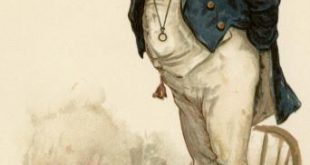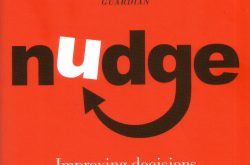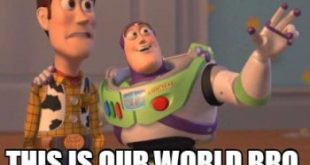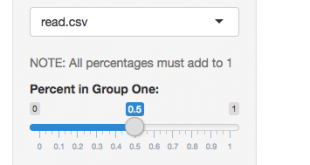Guest post by Jeff Mosenkis of Innovations for Poverty Action. We’re putting up the links early this week for your travel enjoyment. If you’re traveling, end your trip smarter than you started! We’ve posted the IPA 2017 Great Holiday Travel Podcast Playlist with podcast feeds and specific episodes we liked. It’s got stories from around the world, research podcasts, and, in preparation for the holidays, three different episodes on how to disagree constructively. So feel free to just play...
Read More »DSGE models are missing the point
DSGE models are missing the point In a recent attempt to defend DSGE modelling, Lawrence Christiano, Martin Eichenbaum and Mathias Trabandt have to admit that DSGE models have failed to predict financial crises. The reason they put forward for this is that the models did not “integrate the shadow banking system into their analysis.” That certainly is true — but the DSGE problems go much deeper than that: A typical modern approach to writing a paper in DSGE...
Read More »Pickwickian economics
Mill provides a good illustration of the tension between fallibilism and anti-foundationalism. Mill’s first principles are supposed to be empirical and not necessary truths, but for economics to be an empirical subject at all, they have to be beyond genuine doubt, since they provide the only empirical element in an otherwise deductive system. The certainty that Mill claims for the results of scientific economics are purchased with deep uncertainty about the significance of...
Read More »Why Krugman and Stiglitz are no real alternatives to mainstream economics
Why Krugman and Stiglitz are no real alternatives to mainstream economics Little in the discipline has changed in the wake of the crisis. Mirowski thinks that this is at least in part a result of the impotence of the loyal opposition — those economists such as Joseph Stiglitz or Paul Krugman who attempt to oppose the more viciously neoliberal articulations of economic theory from within the camp of neoclassical economics. Though Krugman and Stiglitz have...
Read More »Getting the rabbit into the neoclassical hat
Getting the rabbit into the neoclassical hat In public, including in the training of economists, Neoclassical economics usually reads its models backwards. This gives the illusion that they show the behaviour of individual economic units determining sets of equilibrium values for markets and for whole economies. It hides the fact that these models have been constructed not by investigating the behaviour of individual agents, but rather by analysing the...
Read More »Getting the rabbit into the neoclassical hat
Getting the rabbit into the neoclassical hat In public, including in the training of economists, Neoclassical economics usually reads its models backwards. This gives the illusion that they show the behaviour of individual economic units determining sets of equilibrium values for markets and for whole economies. It hides the fact that these models have been constructed not by investigating the behaviour of individual agents, but rather by analysing the...
Read More »On Econs and Humans
On Econs and Humans Many years ago, Thaler was hosting dinner for some guests (other then-young economists) and put out a large bowl of cashew nuts to nibble on with the first bottle of wine. Within a few minutes it became clear that the bowl of nuts was going to be consumed in its entirety, and that the guests might lack sufficient appetite to enjoy all the food that was to follow. Leaping into action, Thaler grabbed the bowl of nuts, and (while sneaking a...
Read More »The atomic hypothesis and the limits of econometrics
The atomic hypothesis and the limits of econometrics Our admiration for technical virtuosity should never blind us to the fact that we have to have a cautious attitude towards probabilistic inferences in economic contexts. Science should help us disclose causal forces behind apparent ‘facts.’ We should look out for causal relations, but econometrics can never be more than a starting point in that endeavour since econometric (statistical) explanations are...
Read More »IPA’s weekly links
Guest post by Jeff Mosenkis of Innovations for Poverty Action. South Africans, trying to come to grips with the astonishing scale of the crisis, have adopted a once-obscure political science term, “state capture,” as a staple of even casual conversation … Yet previous examples of state capture have almost always involved a broad cast of protagonists: an entire industry, for example, or wealthy businessmen as a group. In South Africa, it may have been pulled off by a single family....
Read More »IPA’s weekly links
Guest post by Jeff Mosenkis of Innovations for Poverty Action. South Africans, trying to come to grips with the astonishing scale of the crisis, have adopted a once-obscure political science term, “state capture,” as a staple of even casual conversation … Yet previous examples of state capture have almost always involved a broad cast of protagonists: an entire industry, for example, or wealthy businessmen as a group. In South Africa, it may have been pulled off by a single...
Read More » Heterodox
Heterodox








